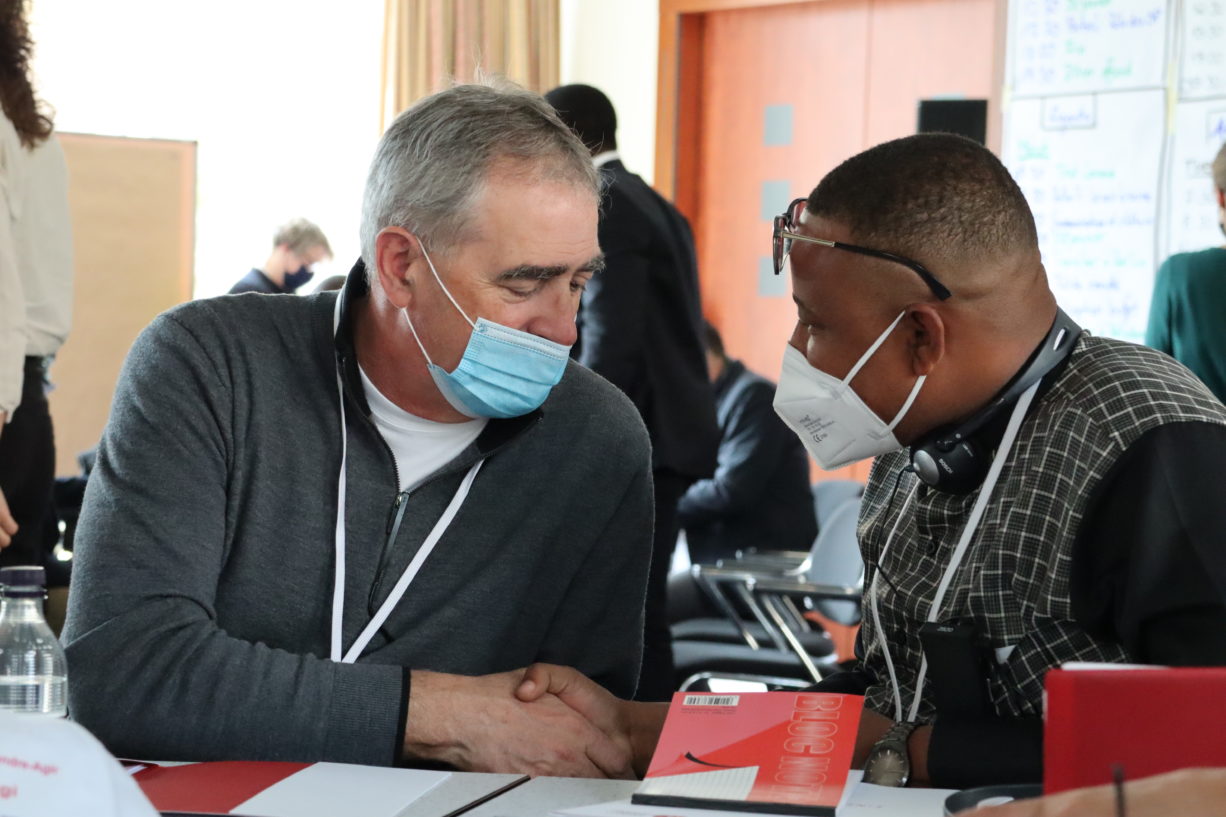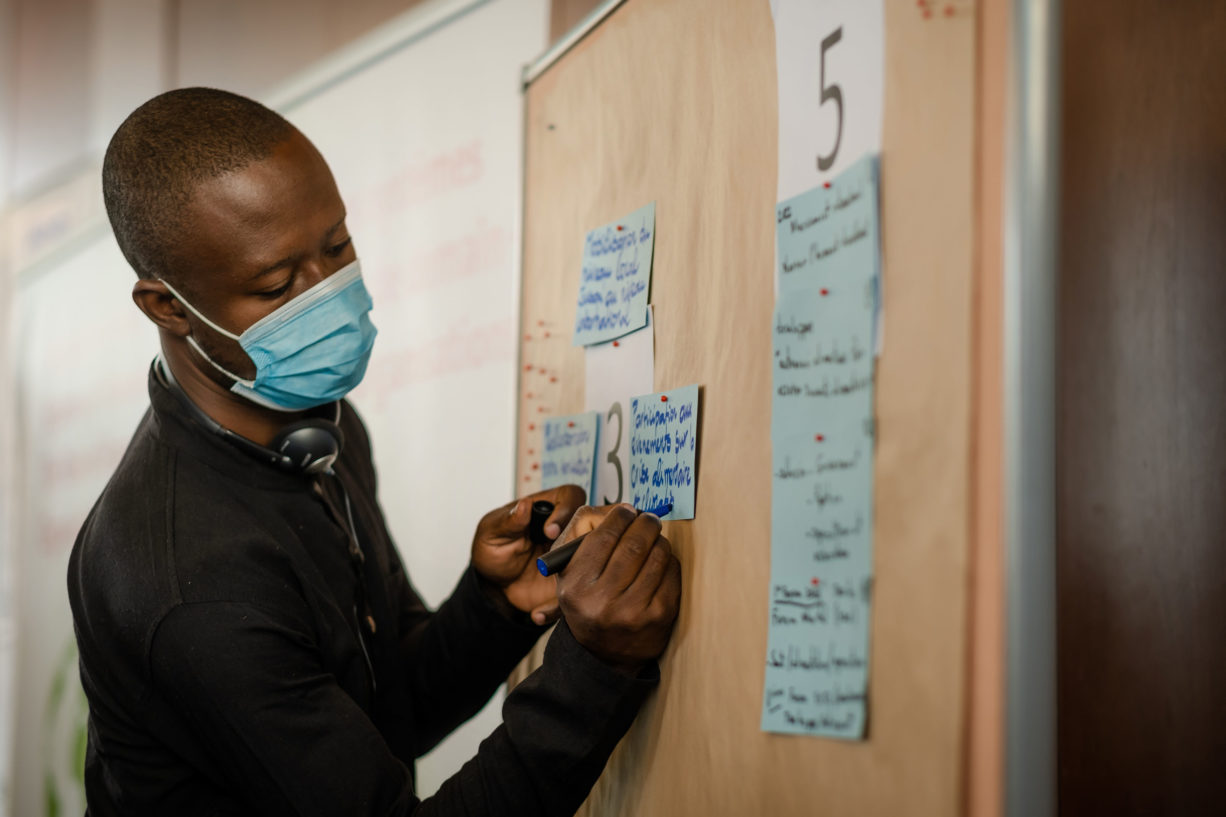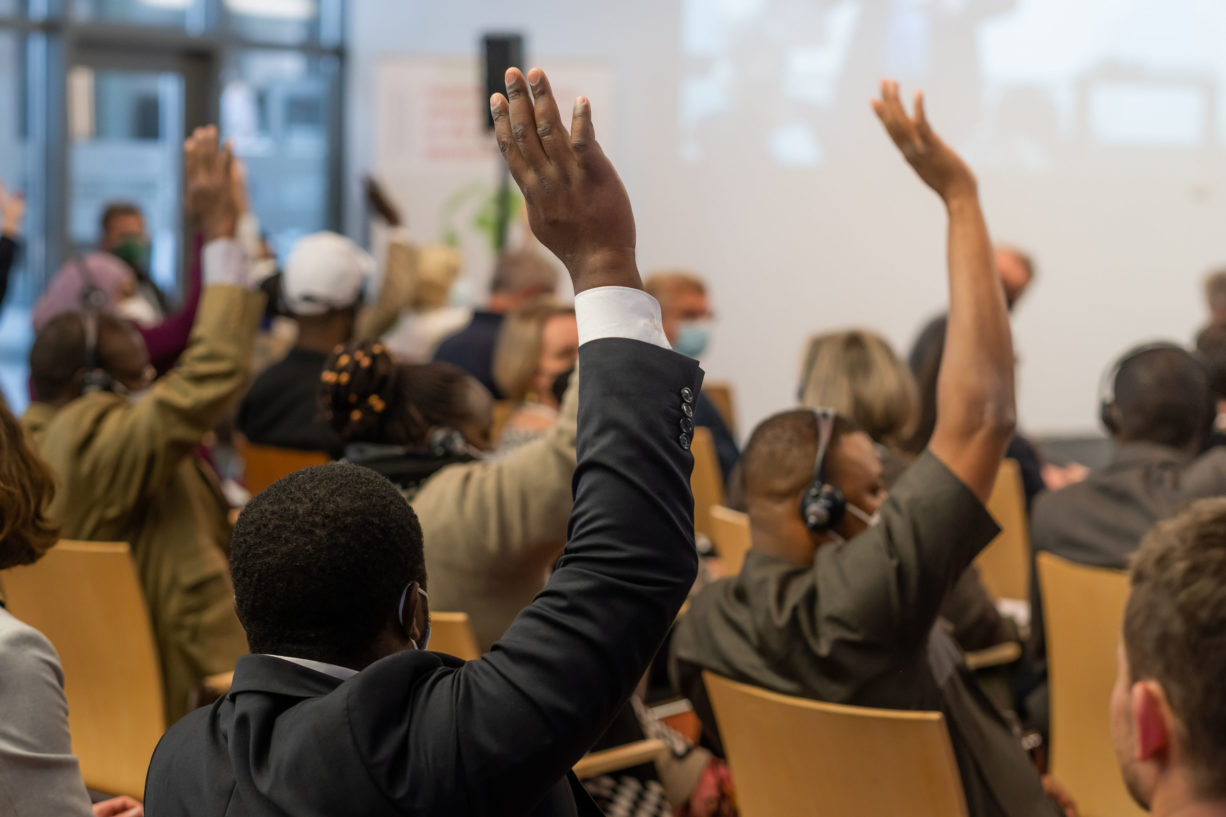
From April 3-5, representatives of national, continental and world farmers’ organisations met in Potsdam to engage in exchange. It was the first time in ages – since before the pandemic – that representatives were able to exchange and learn from each other in person, rekindle and create new relationships. In intensive workshop sessions, they explored issues surrounding the role of organised agriculture in food system transformation processes. Their questions included: how does political advocacy work in these complex processes? How can we manage to represent the heterogeneity of our members in a collective way? How can we work together across sectors, involving the private sector, civil society and policymakers? What tasks can we undertake to implement national goals? Where are the levers for organised agriculture to make food systems more sustainable and resilient? What resources do we need for this? And what do international agreements actually achieve?
What has become clear is that organised agriculture functions and acts differently everywhere. And yet it shares the same challenges. Participants admitted that it is difficult to reconcile the divergent interests not only of their own members, but also of farmers’ organisations. Continuous dialogue is indispensable for this. But there is also a non-negligible proportion of farmers who, voluntarily or not, do not form part of organised agriculture. For example, women. While women account for more than half of the agricultural labour force in some regions, few of them are members of an association. So to truly represent the interests of agriculture, the representatives agreed that women need to be better involved.

When we talk about the future of food systems, we are inevitably talking about young people, the young generation of producers and consumers. However, agriculture being an increasingly unattractive sector for young people, organisation representatives are struggling to attract a younger membership base. One reason that they see for this is insufficient opportunities to build up the business in a way that is fit for the future. Because that requires one thing above all: money. Stable, long-term financing options are lacking in many countries of the Global South. While some financing plans in Germany are approved for a period of 30 years, in Burkina Faso for example, they often only last three years – too short to really restructure your own business.
All in all, silo mentality is much too frequent – environmental protection vs. agriculture, climate vs. nutrition, arable farming vs. animal breeding, biodiversity vs. highly productive hybrid varieties – and the fact that we are talking about food systems is forgotten. Only together can sustainable solutions be achieved – and farmers are part of the solution. Implementing ambitious climate goals requires cooperation on an equal footing. But when it comes to implementation, decisions are often made over the heads of farmers – even though in some parts of the world 80% of the population works in the agricultural sector. That’s why Theo de Jager, President of the World Farmers’ Organisation (WFO), is demanding “We want to be in the kitchen, we want to be there planning the menu!”
Click here for the video.

This could be of interest to you:
-
International Cooperation -
International Cooperation Six farmers’ organisations, one change and one mission
Read -
International Cooperation Toolbox of Selected Agricultural Trade Policy Instruments
Read